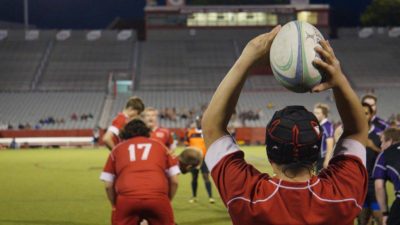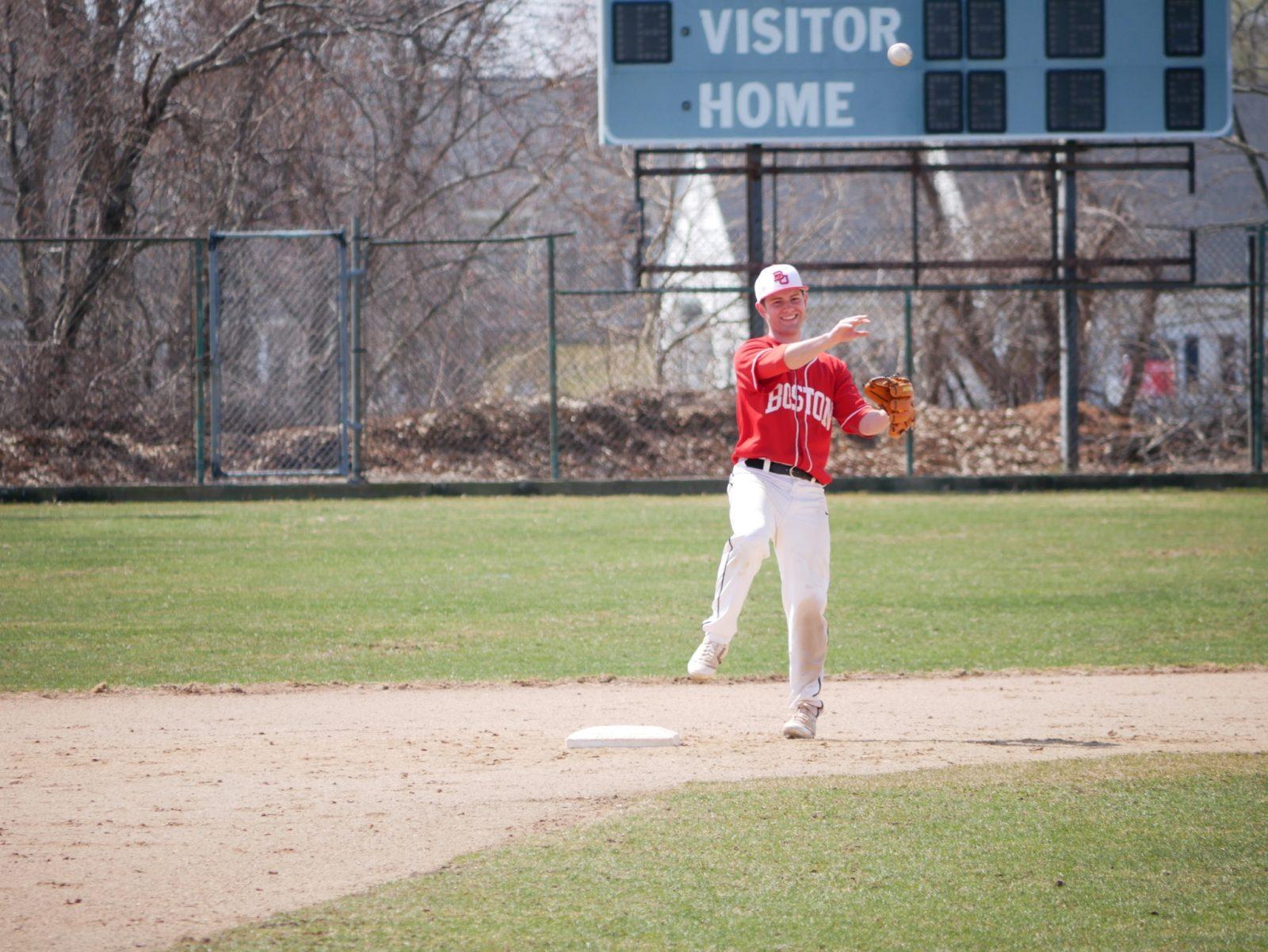
Two seasons ago, the Boston University men’s rugby club finished with an 0-9-1 record. However, with a revamped coaching staff, a plethora of young talent and a strong core of upperclassmen, the Terriers have high hopes for a championship run this season.
For the second straight year, the team will be coached by Lulama Mabeta. Mabeta led the Terriers to a 4-3 record last year. Members of the team said they feel as though it has a strong foundation to build upon moving forward.
While many players spoke highly of the team’s mastery of the tangibles and intangibles on the pitch, junior prop and social media director John Margolies had high praise for the team’s character off the field.
“The biggest thing that BU rugby has to offer is the camaraderie between the guys and how welcoming we are, because I’ve never played rugby before in my life and we were welcomed in and brought into the culture,” Margolies said. “They’re understanding that it’s a weird sport and not really popular here, and they take the time to help you out.”
Junior flanker, 8-man and captain Dylan Winchell echoed Margolies’ sentiment and emphasized that strong relationships off the field have helped create better team chemistry on the field.
“People traditionally think of rugby as a bunch of big thugs, but I was amazed by how respectful and how welcoming everyone on the team was,” Winchell said. “Some of the smartest people I know are on the rugby team. It’s such a diverse group of people, and the brotherhood and team aspect of [rugby] has been such a benefit to my experience at BU.”
While team chemistry can show on the field, having previously played the sport helps as well. Many members of the team have not played and there can be an adjustment period, as rugby is a very physical sport similar to American football, but played with no protective gear like helmets or traditional padding.
As a former football player, Winchell highlighted the key difference between football and rugby, particularly the mental adjustments he made in his transition.
“Because you’re not wearing pads, you’re playing smarter,” Winchell said. “I would say it’s definitely no more dangerous than football.”
Margolies also stressed that rugby is a game of constant movement where players are expected to play both offense and defense, unlike football.
“The biggest part of rugby, at least for me, is communication,” Margolies said. “[Rugby] doesn’t stop like football and a lot of decisions are made on the fly. You have to be able to know the calls and trust that the person next to you will make the right pass.”
Although, this kind of trust does not come without experience. While many of the rugby football club’s players had not played the sport before their time at BU, a core group of players have built up a strong chemistry that they can now pass on to the team’s incoming freshmen class.
Senior captain and flyhalf Matthew Stringer lauded the team’s newest members, primarily stating how impressed he was by their prior experience.
“For the first time in a while, we have a lot of kids coming who had played before,” Stringer said. “We’ve got a couple kids from Australia, a kid from France and even a few Americans who had even played at a high level in high school.”
There are endless differences between high school and college, and according to Stringer, the next step is to ensure that the younger players’ mental toughness catches up with their technical skill.
The rugby football club competes in the Colonial Coast Rugby Conference, a Division II Collegiate League, that consists of five other teams.
Both Margolies and Stringer discussed the importance of something they referred to as their “welcome to rugby” moment, where they endured a hit so devastating it increased each player’s mental toughness.
“It’s kind of cliché, but you have to be able to take a hit and get back up,” Margolies said. “Everybody has that ‘welcome to rugby’ moment where they take that one big hit and realize, ‘If I can take this, every other hit is going to be nothing.’”
As a well-respected and more experienced player on the team, Stringer explained the role he plays as captain of the team and the type of culture he hopes to breed throughout the rest of his senior year.
“Mentally, [the freshmen] are not getting as discouraged because they’ve already played before, so we can set a precedent for attitude as the upperclassmen and leaders of the club,” Stringer said. “I think mental toughness, which is a tricky thing to gauge, is extremely important.”
To Margolies, Stringer and Winchell, the team’s experienced youth puts them in good hands. All three players are not only excited to put together a deep playoff run with the younger players, but are also excited to see what these younger players can accomplish after they graduate.
“I think these boys are as good as any to continue on,” Stringer said.





















































































































